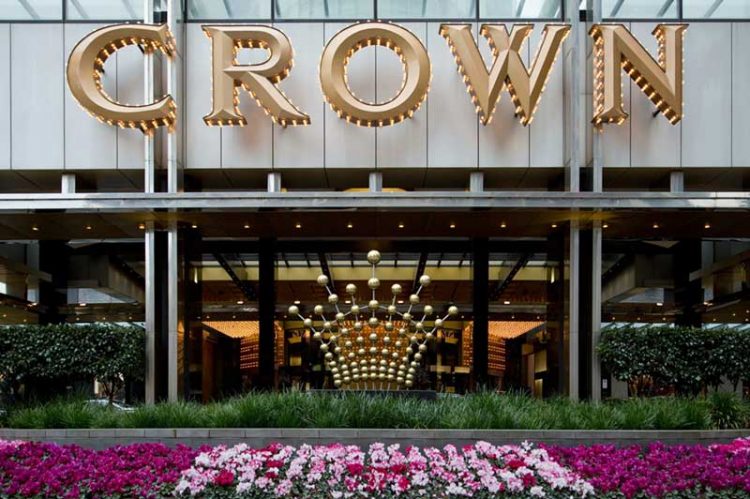Counsel Assisting the Royal Commission into Crown Melbourne has asked the Commissioner to find Crown unsuitable to retain its casino license on public interest grounds and breaches of Victoria’s Casino Control Act.
Providing final submissions to the Royal Commission on Tuesday, Adrian Finanzio SC said evidence tendered during two months of hearings showed Crown should at best have its casino license suspended and at worst cancelled altogether due to systemic issues around money laundering controls, responsible gambling, tax payments and compliance.
He also called for Crown Resorts Executive Chair Helen Coonan and Crown Melbourne CEO Xavier Walsh to be found not suitable to be associates of Crown Melbourne.
The Victorian Royal Commission was called in February 2021 following the conclusion of a similar inquiry in NSW and the subsequent release of the Bergin Report, which recommended Crown be found unsuitable to retain its license for Crown Sydney amid revelations it had been infiltrated by criminal entities to launder money. Victoria’s Royal Commission has uncovered similar evidence alongside examples of significant tax avoidance and failure to implement appropriate problem gambling controls.
Proposing that Crown has lost the trust and confidence of the Victorian public, Finanzio said, “The misconduct that has given rise to the loss of confidence and trust is at the most serious end of the spectrum, including systemic and repeated failings as an AML/CTF reporting entity, a provider of responsible gaming, a casino that guards against organized crime influences at the casino, a taxpayer, an employer who failed to prioritize employee safety and a regulated entity who was more concerned with the risk of getting caught than compliance.”
These, he said, “are all matters which weigh heavily in favor of a finding that public interest be better served by not having this licensee.”
Finanzio pulled no punches in delivering his final submissions. On the issue of responsible gambling, he stated, “There was at all times in our submission a systemic failure in Crown’s approach, placing it in continuous breach of its code.
“These RSG (responsible service of gambling) failings have had a significant impact on the community. The evidence revealed that gambling at the casino has resulted in financial hardship, criminal activity, forced prostitution and in some cases even suicide. They together underscore, along with the legislative requirement to do this properly, the importance of the issue.
“In addition, the evidence established a number of serious breaches of Section 68 (concerning the issuance of credit). The breaches are serious because they are obvious violations of the provisions.”
On AML controls, he said, “Crown has failed woefully to adequately address the key risk of money laundering at the casino. At present, Crown is not at a level of readiness to combat money laundering at a level that is to be expected of the operator of a casino as sophisticated as Crown. It is, according to its own evidence, at only an early stage of maturity.
“These are all factors which weigh heavily against suitability.”
Finanzio did praise the efforts of Steven Blackburn, Crown’s new Chief Compliance and Financial Crimes Officer, referencing an “impressive and ambitious” financial crime reform program he has outlined for the company since stepping into the role in March.
However, there remain concerns around how long it will take Crown to implement such changes, with Blackburn himself having set an “aspirational date of 31 December 2022 for target maturity” but with some target dates also set for 2023.
Finanzio said he had no reason to doubt Crown’s intention to implement reform but noted serious challenges to doing so in terms of the extent of rehabilitation required, the uncertain amount of time required and the uncertainty of the outcome.
He was also highly critical of Crown’s responses over the past two years, including throughout the Royal Commission, to adverse findings, suggesting examples of bad behaviour were still rife within the company despite the departures of several directors and senior executives since release of the Bergin Report.
“The Casino Control Act expects of the licensee that it won’t behave like the accused in a criminal trial, standing behind the onus of proof and taking every point to avoid conviction,” Finanzio said.
“The whole purpose of the suitability test of character, honesty and integrity is that it is expected that the onus will shift to the licensee who will behave like a fit and proper person, who will own up to misdeeds, to proactively seek to address matters of concern.
“A licensee of good repute does not make the untenable argument but instead concedes ground. A licensee of good repute does not resist requests reasonably made or changes sought to be introduced for good reason. They appreciate the reasonableness of the request or the necessity for change, even if the request or the change causes them inconvenience.
“The opposite has been on display over the last two years and … examples of ‘Old Crown’ behaviour has been on display in recent times,” Finanzio continued, referencing the ‘Old Crown’ phrase which Crown has recently utilized in an attempt to distance itself from its past behavior.
“On balance it would be open to the commission to find that it is not in the public interest for Crown to retain the license.”
Crown Resorts is due to present its final submissions on 3 August, with Commissioner Ray Finkelstein to hand down his final recommendations by 15 October 2021.

































